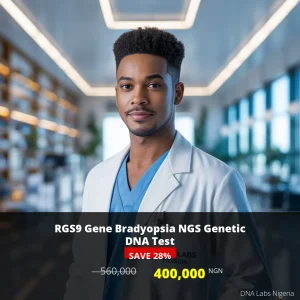CCDC103 Gene Primary Ciliary Dyskinesia Type 17 NGS Genetic DNA Test
Introduction to the CCDC103 Gene Test
The CCDC103 Gene Primary Ciliary Dyskinesia Type 17 NGS Genetic DNA Test is a specialized diagnostic tool that plays a significant role in identifying genetic mutations associated with primary ciliary dyskinesia (PCD). This condition affects the motility of cilia, which are microscopic hair-like structures that line the respiratory tract and other organs. Understanding your genetic predisposition to PCD can lead to timely interventions and improved health outcomes.
What the Test Measures
This genetic test specifically detects mutations in the CCDC103 gene, which is critical for the proper functioning of cilia. By analyzing the DNA, healthcare providers can determine if an individual is at risk of developing PCD, allowing for early diagnosis and management.
Who Should Consider This Test?
Individuals experiencing symptoms such as chronic respiratory infections, reduced fertility in males, or other related ENT disorders should consider this test. Those with a family history of PCD or genetic predispositions may also benefit from testing.
Benefits of Taking the Test
- Early diagnosis of primary ciliary dyskinesia.
- Informed decision-making regarding treatment options.
- Genetic counseling for affected family members.
- Better management of symptoms associated with ciliary dysfunction.
Understanding Your Results
Results from the CCDC103 Gene test will indicate whether any mutations are present. A genetic counselor will help interpret the results, discussing the implications for your health and potential next steps.
Test Details and Pricing
| Test Name | Discount Price | Regular Price |
|---|---|---|
| CCDC103 Gene Primary Ciliary Dyskinesia Type 17 NGS Genetic DNA Test | 400000 NGN | 560000 NGN |
Book Your Test Today
Don’t wait to get the answers you need. Call us at +2348110567037 or visit our website to book the CCDC103 Gene Primary Ciliary Dyskinesia Type 17 NGS Genetic DNA Test today!
Additional Information
Turnaround time for results is approximately 3 to 4 weeks. The sample type required for this test can be blood, extracted DNA, or one drop of blood on an FTA card. It is recommended to have a clinical history of the patient and a genetic counseling session to draw a pedigree chart of family members affected by CATSPER2 Gene Deafness and male infertility.
Consult with an ENT doctor or a genetics specialist for further guidance and to understand the importance of this test in diagnosing and managing ear, nose, and throat disorders.







